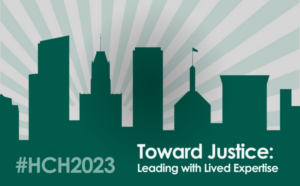This presentation will focus on encouraging clinical excellence of helpers as they provide care to our most vulnerable while providing a framework that not only protects the helpers from compassion fatigue, but promotes a worldview of partnership, optimism and empowerment.
Motivational Interviewing (MI) can be defined as a particular way of talking with people about change and growth to strengthens their own motivation and commitment to making changes in their lives. It is true that nobody can make anybody do anything. Be it flossing, exercise, working with housing navigators or substance use treatment. Often, in our desire to help, our “fixing impulse” is activated and we tell people what they should be doing. Even in the most client centered manner, this strategy may have the opposite effect of helping, instead causing people to be defensive, not trusting and turning away from us. MI provides an evidenced based set of strategies that evokes that internal motivation creating space for people to create their own arguments for change.
It is common for helpers to feel it is our responsibility to “save” the patient by healing wounds, obtaining housing or entering treatment. And if the patient does not change, it is because we did something wrong. This can lead to compassion fatigue. Our job is to provide the best services possible that promote change, and that is all the control we have. MI provides evidence-based interventions that allows a helper to definitely say, “I did the best I could in this situation.” Additionally, the spirit of MI which is partnership, empowerment, acceptance and compassion supports a perspective that does not support the “It is up to me to save this person.” It is up to the help and the person.
Speakers: Rafael Martinez: LCSW, Director of Behavioral Health, Circle the City
Session Materials:

